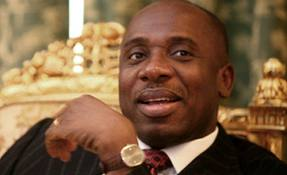The plan by the federal government to float a new national shipping line may have run into troubled waters as the federal government missed a key commitment timeline put forward by international investors on the bid to establish a new national carrier to replace the liquidated Nigerian National Shipping Line (NNSL). According too the template set up by Minister of Transportation on receiving the report of the committee said “investors had given August as deadline on this issue, and we have said government is going to use part of the cabotage fund in this direction. We must also advise on how to choose who qualifies to benefit from the fund because the 60 per cent that we have must be accessed from the cabotage as part of their equity contribution,” Amaechi had said in June 2017 while receiving the report of the Olu Akinsoji-led committee.
Amaechi’s plan for a new national carrier is anchored on the private sector whereby 60 per cent will be owned by local private investors while their foreign counterparts are expected to hold 40 per cent stake. He had assured stakeholders of government’s political will at ensuring that the new project gets cargo to carry, adding that the present government was determined to do everything possible to ensure that the new national carrier succeeds.
On presentation of the report from the Chairman of the committee in June last year, the minister had immediately constituted an implementation committee headed by the Chief Executive Officer of the Nigerian Shippers’ Council (NSC), Mr. Hassan Bello. However, since the report was submitted, nothing has been heard from the Ministry of Transport, raising fears that the effort may yet be another pipe dream. The minister did not give details of the framework and foundation for viable international maritime activities specified by foreign investors. However, it was understood that government ought to have backed the project with appropriate legislation that would guarantee the new carrier access to cargo, institutional support and insulation from political interference. The plan also included the acquisition of office space.
Amaechi had pledged to use money from the Cabotage Vessel Finance Fund (CVFF) in creating the framework. However, controversy has continued to trail the project as some stakeholders remain opposed to it. Their contention is that any such plan with government imprimatur may re-enact the ambience under which the National Unity Line (NUL) which was promoted as successor to NNSL was dogged by NNSL’s international perception and eventually scuttled by the debt over-hang of the liquidated carrier.
Making a case for the new carrier in his committee’s report, Akinsoji said in 2014, Nigeria lost $2.2 billion because of the absence of national shipping line. According to him, “If 50 per cent out of the 5,000 ships that landed in Nigeria in 2014 were Nigerian ships and managed by Nigerians, the country would have saved $2.2 billion.” He said Nigerian seafarers that would have been engaged to work on the fleet would have been earning about $3,000 per month. Akinsoji added, “So you can imagine the number of families that would have benefitted from that and these are the kind of loses that we are making by not having ships carrying our cargoes in the international waters.”
However, former President Olusegun Obasanjo had while reacting to the matter advised the federal government against resuscitating the defunct Nigerian National Shipping Line, NNSL. Obasanjo blamed the demise of NNSL on the lack of professionalism and high level corruption at the time. He said: “NNSL had been liquidated. They tried Nigeria Unity Line (NUL), it collapsed. Nineteen brand new ships were specially built for Nigeria and we did not take delivery of some of them until I left office in 1979. When I came back in 1999, NNSL had been liquidated with all 19 ships and the five already in existence gone. Two of the ships were missing for almost two years and it was discovered that one military man was using them all over the world without accountability.”
On the cabotage fund, Amaechi has repeatedly vowed not to disburse any of the over N100 billion already collected from operators of coastal shipping. “I will not release that fund until I am removed tomorrow as Minister for Transportation. We gave over N300 billion to the owners and businessmen in the aviation industry. Some took N35 billion and some N32 billion and they disappeared,” the minister had stated, noting that those who collected loans in aviation sector and defaulted are walking about free. But, countering the minister, president of the Ship Owners Association of Nigeria (SOAN), Mr. Greg Ogbeifun, said the law required him (the minister) to establish guidelines for the disbursement rather than claiming that there were none.
“The law requires that the minister sets up guidelines for disbursement. The law does not allow you to sit on the money doing nothing which is the situation we are in now and the ship owners are still contributing money to that fund up till now. “Our tonnage is going down, seafarers are going out of job, businesses are collapsing and you are sitting on the money and in the midst of that, you are still collecting money in a regime where our shipping business is dying.” Ogbeifun expressed his displeasure over challenges facing indigenous ship owners and the turn of event in the industry in the last three years.

